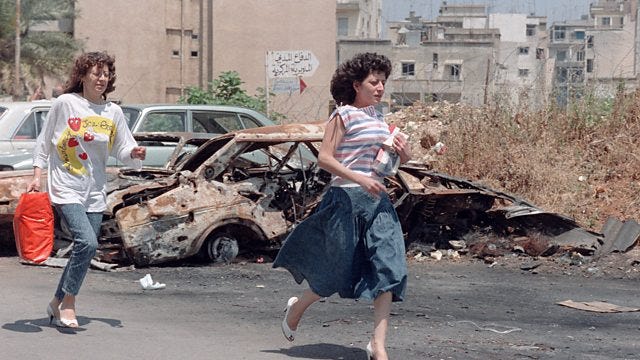This week marks fifty years since the Lebanese Civil War began. I've been alive for three of those five decades, born just after the guns fell silent, into a nation caught between Syrian and Israeli occupation. While I never directly witnessed the war, its shadows have profoundly shaped my life and the lives of all Lebanese people.
Our generation grew up inheriting trauma. Our parents came of age amid conflict, and their unspoken scars inevitably passed down to us. Beyond psychological wounds, though, the legacy of the war has been entrenched deeply into our national psyche. It looms like an omnipresent specter over every political debate, every demand for change, every aspiration for a better Lebanon.
Every attempt at reform or modernization seems trapped by one phrase: "We can't, it might reignite a civil war." We can't conduct a census, we can't dismantle corruption, we can't address inequality or political dysfunction because doing so is painted as an existential risk, an invitation…
Keep reading with a 7-day free trial
Subscribe to Gino's Blog to keep reading this post and get 7 days of free access to the full post archives.




